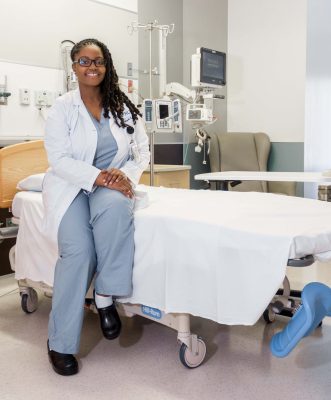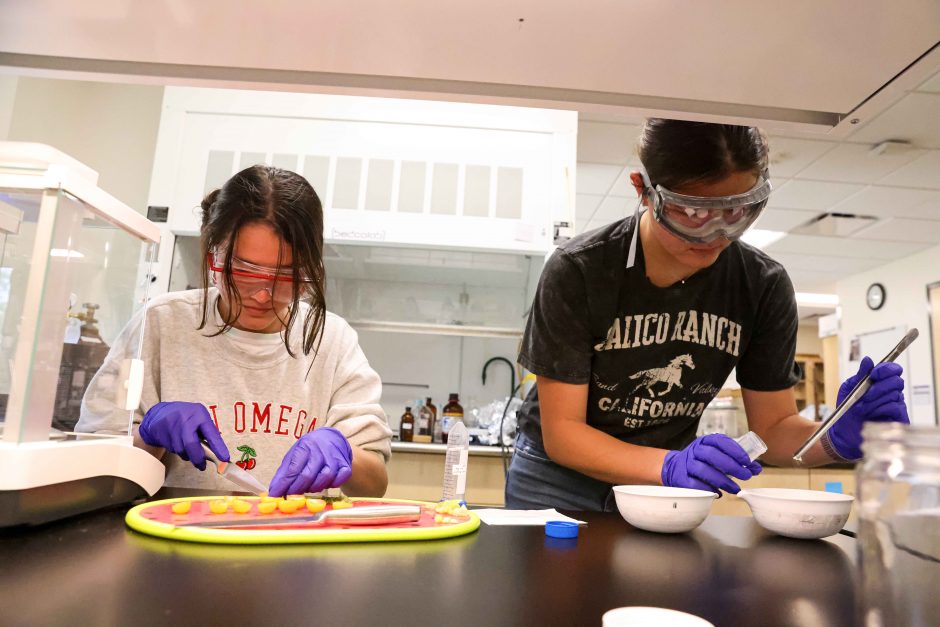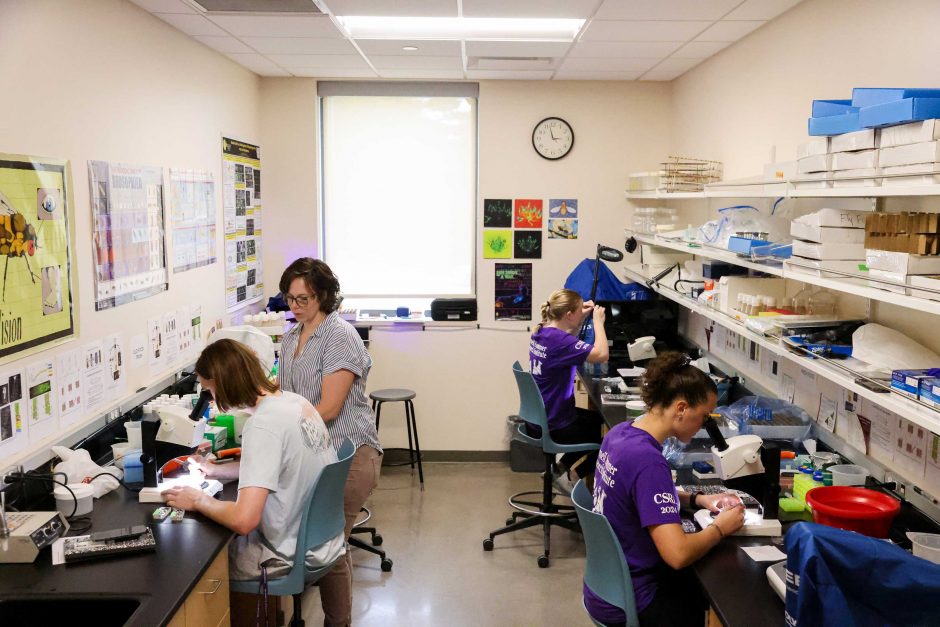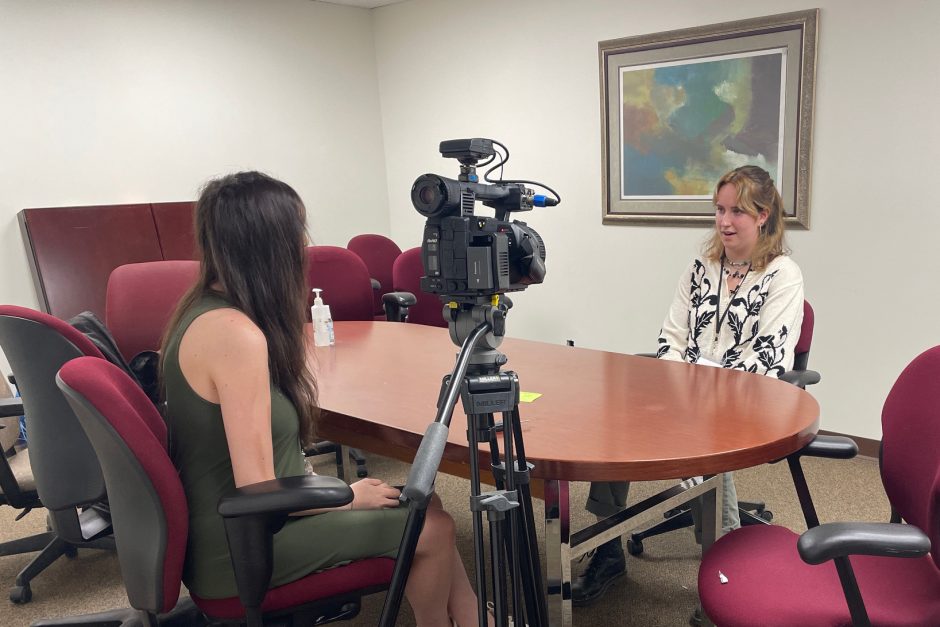From first-gen to OB-GYN
Dr. Nakyda Dean ’08 trod a challenging path from being the first in her family to go to college to her career as an obstetrics and gynecology physician. Now she’s committed to helping others find their own paths to a career in medicine.

“I grew up in a Chicago neighborhood where many of the kids can’t imagine going into medicine,” she says. “I want to help them find their own path.”
Dean came to Cornell after visiting a college fair where One Course At A Time caught her attention. While she says it was “very challenging,” One Course kept her focus on a single subject, which helped her a lot in medical school at Loyola University Chicago.
“I entered a post-baccalaureate program at Southern Illinois University between Cornell and medical school,” she says. “I found I absorbed the information quicker than my classmates there.”
She was influenced greatly at Cornell by Professor of Chemistry Craig Teague, her advisor who encouraged her and helped her navigate her way to medical school when she met roadblocks, and by Ken Morris, then director of the Office of Intercultural Life, a mentor who helped her grow professionally and make life plans.
And in typical Cornellian fashion, she found other courses well outside her core science classes that she enjoyed a great deal.
“I loved Latin with Professor Gruber-Miller,” she says. “He was so enthusiastic and he got us excited about it. I later found it useful to know the Latin roots of medical terms.”
She also singles out a theatre costume class, which she says helped her use her hands to express her creative side, drawing on the sewing skills she’d acquired as a girl.
After graduating with a bachelor’s degree in biochemistry and molecular biology, and finishing up a certificate program at Southern Illinois, she entered medical school.
“Cornell and the block program prepared me well,” she says. “The only thing I would change would be to do more study sessions. I worked in food service and my time was limited, but study sessions would have helped me a lot.”
She’s now in her third year of a four-year residency at Rush University Medical Center in Chicago. She surprised herself by selecting OB-GYN as her speciality, saying she didn’t consider entering the field until she did a rotation in medical school. “To me, obstetrics and gynecology offers a balance between helping healthy women have healthy babies and also working with women who have gynecological issues,” she explains.
She’s facing a new decision now: whether to enter practice as a general OB-GYN doctor or to pursue further subspecialty training. If she does the latter, she is leaning toward a two-year fellowship in minimally invasive surgery.
“If I do the fellowship, my work life will be more predictable and I really like to work with my hands, which is certainly the case in surgery,” she says. “But I hesitate to give up the obstetrics side of the profession.”
Despite the brutal hours resident physicians work, she has found time to engage in outreach to students as young as fifth grade through a city-wide health professions career group.
“I want to be a mentor to the people behind me,” she says.
As she looks back, she has a greater appreciation for her undergraduate education.
“I’ve learned that Cornell is very highly regarded,” she says. “People are amazed at the quality of education you can get in small-town Iowa.”



